SUMMARY
This is AI generated summarization, which may have errors. For context, always refer to the full article.
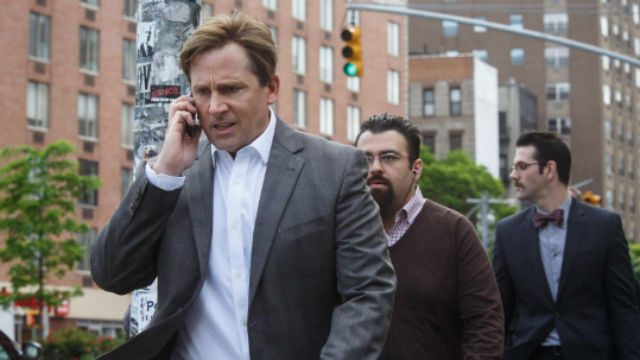
MANILA, Philippines – Adam McKay’s The Big Short operates exactly like a disaster film, the one where the biggest spectacle is a predictable cataclysmic event that has buildings being reduced to rubble, families being torn apart, and random nobodies being turned into feted heroes.
The only difference here is that the catastrophe that McKay readies his audience for is one that does not require special effects. It is one that is even more familiar, involving people losing jobs, careers, homes, and futures in a sweep of an invisible force that is as mighty as anything Mother Nature can dish up.
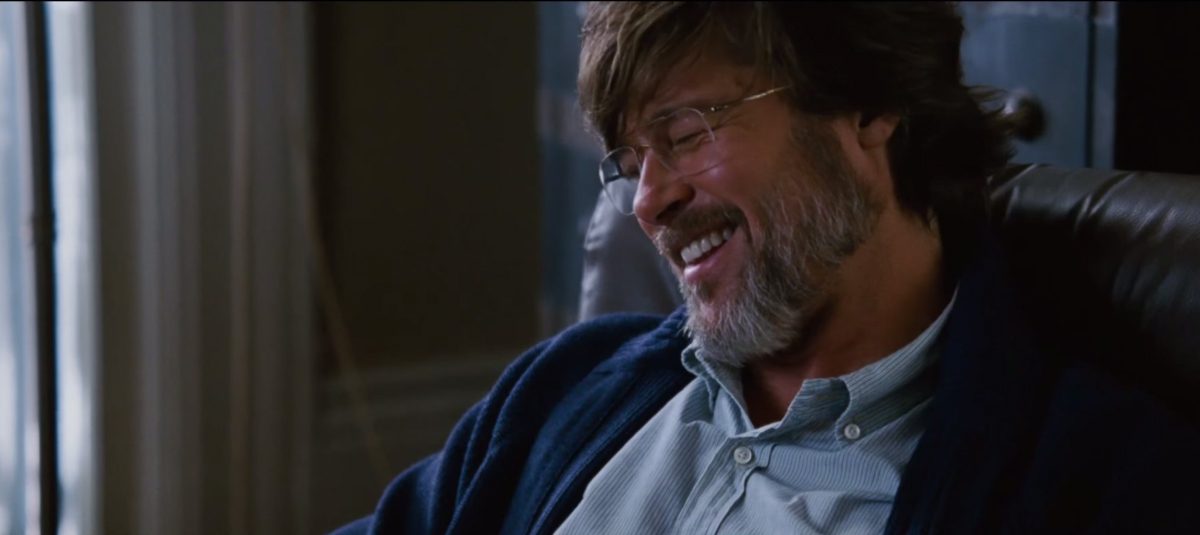
The Big Short is about the 2009 financial meltdown, which saw most of the capitalist world succumb to the repercussions of its unguarded greed. Its heroes, connected only by their shared intuition and how they were able to make use of that intuition, also wallow in the sins of Wall Street, except most of them still have consciences that allow them the feeling of guilt, a rare emotion within the financial community.
McKay’s great disaster movie is as predictable as the ones that exploit exploding volcanoes, gargantuan floods, and impending meteors. What is unpredictable is how cynically funny it is, even amidst the fact that it is all based on reality.
Serious comedy
McKay, however, isn’t a stranger to utilizing comedy to echo heavier sentiments.
Anchorman: The Legend of Ron Burgundy (2004) and its less renowned 2013 sequel would not have been utterly hilarious if it wasn’t based on an exaggerated version of what really transpires in news agencies when the cameras stop rolling. Talladega Nights: The Ballad of Ricky Bobby (2006) hides its droll impression of George W Bush-era America within a satire about dumb racers. Step Brothers (2008) and The Other Guys (2010) similarly have more things in mind than just barraging moviegoers with gags and jokes.
The Big Short, on the other hand, is grounded not on explicit hilarity but on more serious matters. Based on Michael Lewis’ book of the same title, the film is subtle on the comedy, relying mostly on the overt ridiculousness of everything that has happened that caused the financial crisis. Sure, it is all very tragic, yet McKay acknowledges that the entire scam’s a boisterous folly that is unabashedly comical if presented from a perspective that isn’t too involved.
Steered by sketches
McKay approaches the subject matter through people whose backgrounds are provided by just enough glimpses to rationalize motives without turning them into sympathetic figures. They are all human abominations, disfigured in one way or another by their being part and parcel of a community that reduces human beings into opportunities for profiteering.
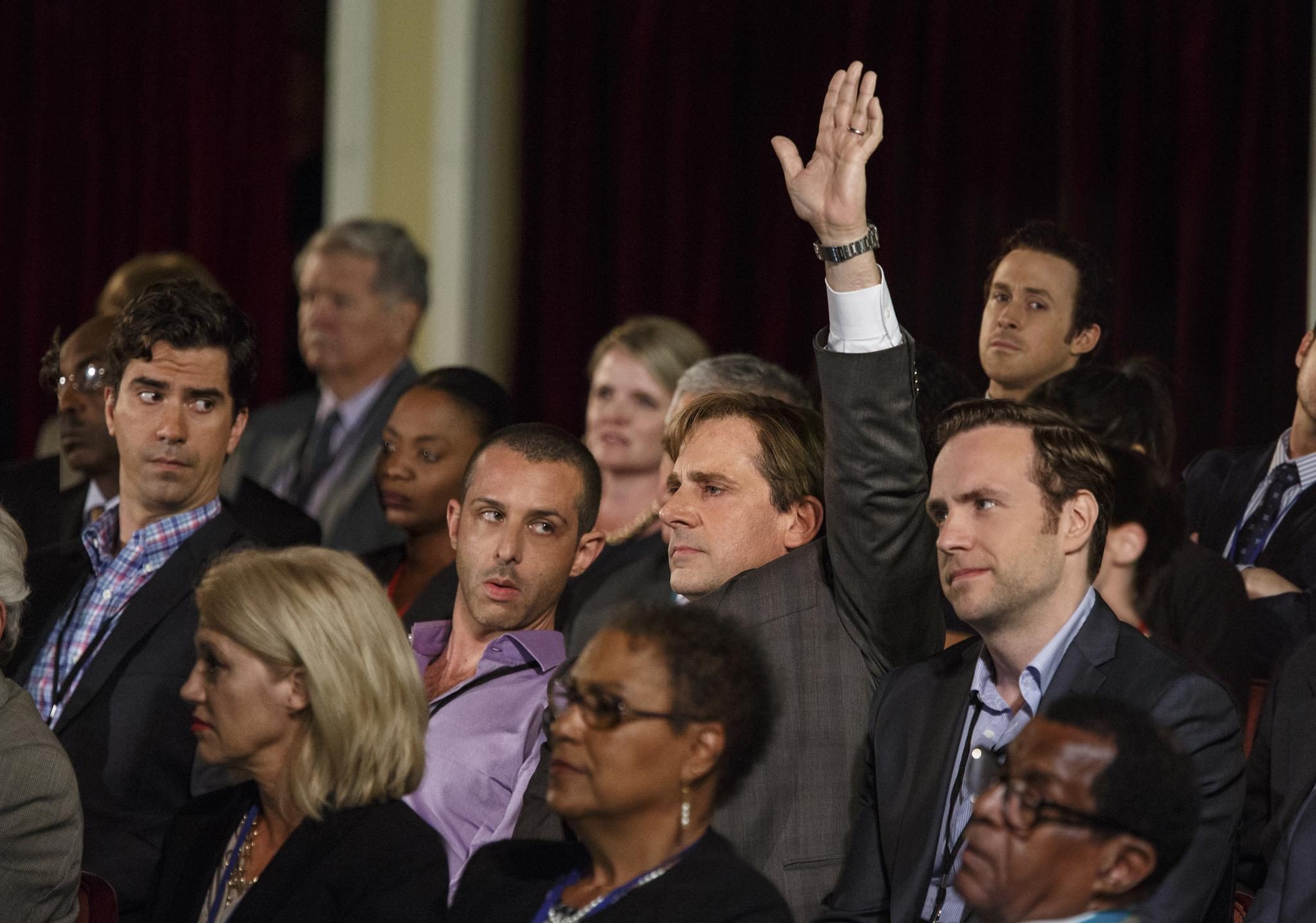
If the film feels like it is steered by sketches instead of three-dimensional characters, it is because it’s funnier that way. That Michael Burry (Christian Bale), the glass-eyed genius who predicts the bursting of the bubble from within his own bubble of an office, is depicted as a pathetic recluse whose life’s affirmation hinges on a risky gamble is a genius move.
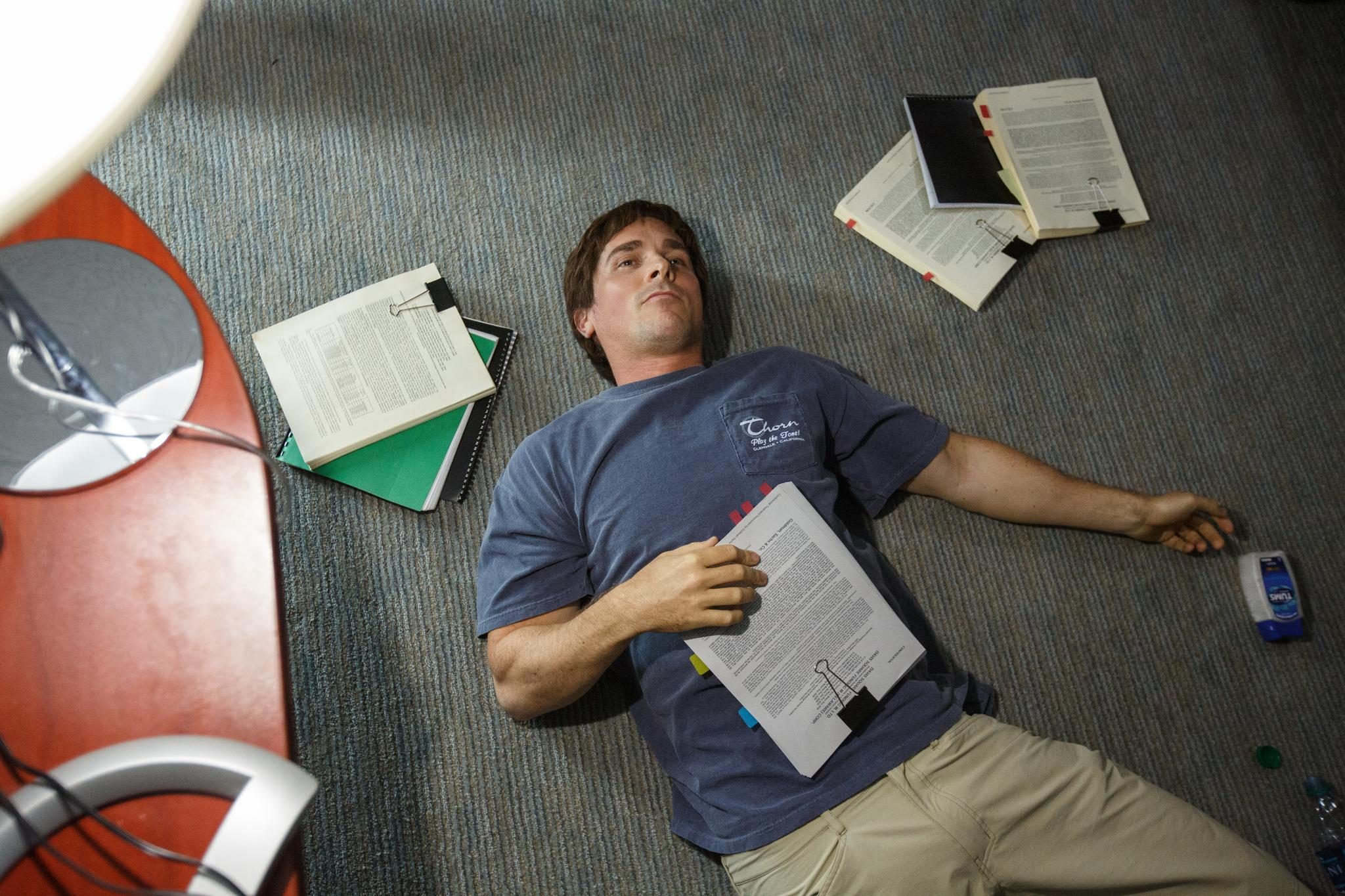
Jared Vennett (Ryan Gosling), who turns the second-hand information of Burry’s gamble into a business proposition, looks reptilian with his cold stare, sleek hair and calculated gestures.
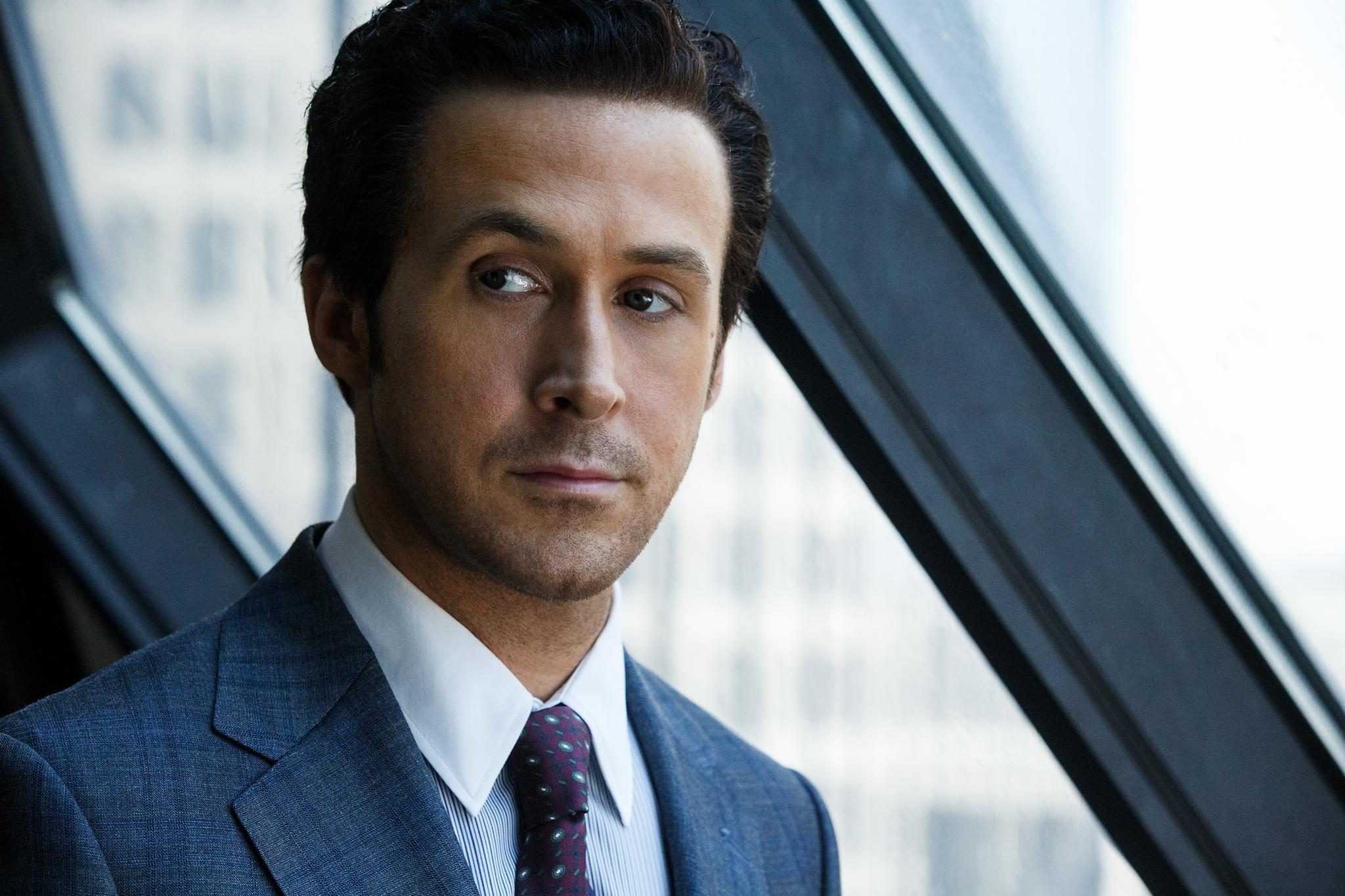
Mark Baum (Steve Carell) accepts Jared’s proposition while nursing the trauma of losing his brother to the evils of Wall Street. He’s a nervous wreck, whose constant gasps of disbelief as to how corrupt everything has become provide the film its semblance of a moral center, even though the character itself surrenders to the whims of capitalism by virtue of being in too deep to be able to get out.
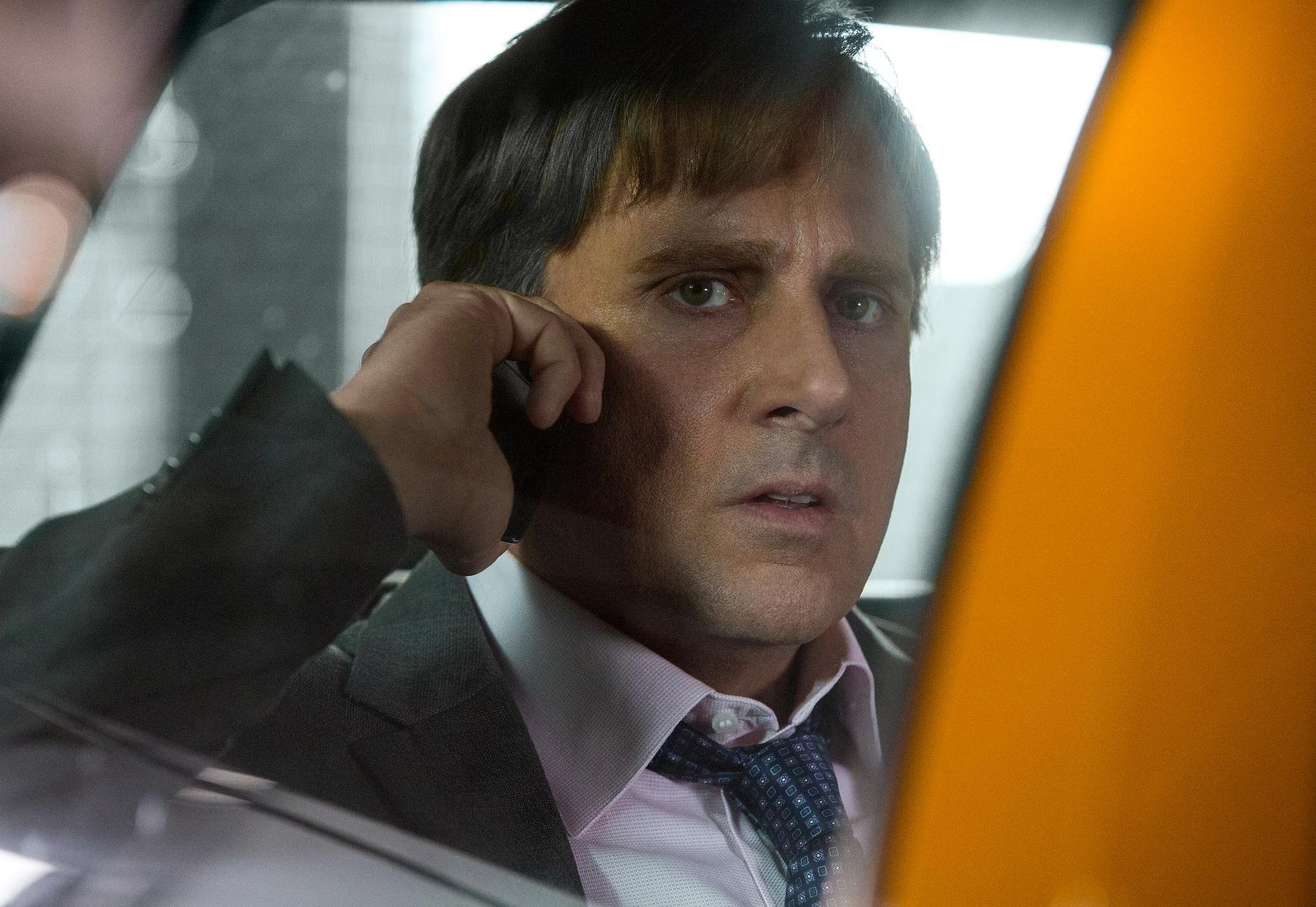
Elsewhere, two upstarts (John Magaro and Finn Wittrock) recruit Ben Rickert (Brad Pitt), a Wall Street trader who quit his job out of disgust, to fulfil their dreams of becoming wealthy.
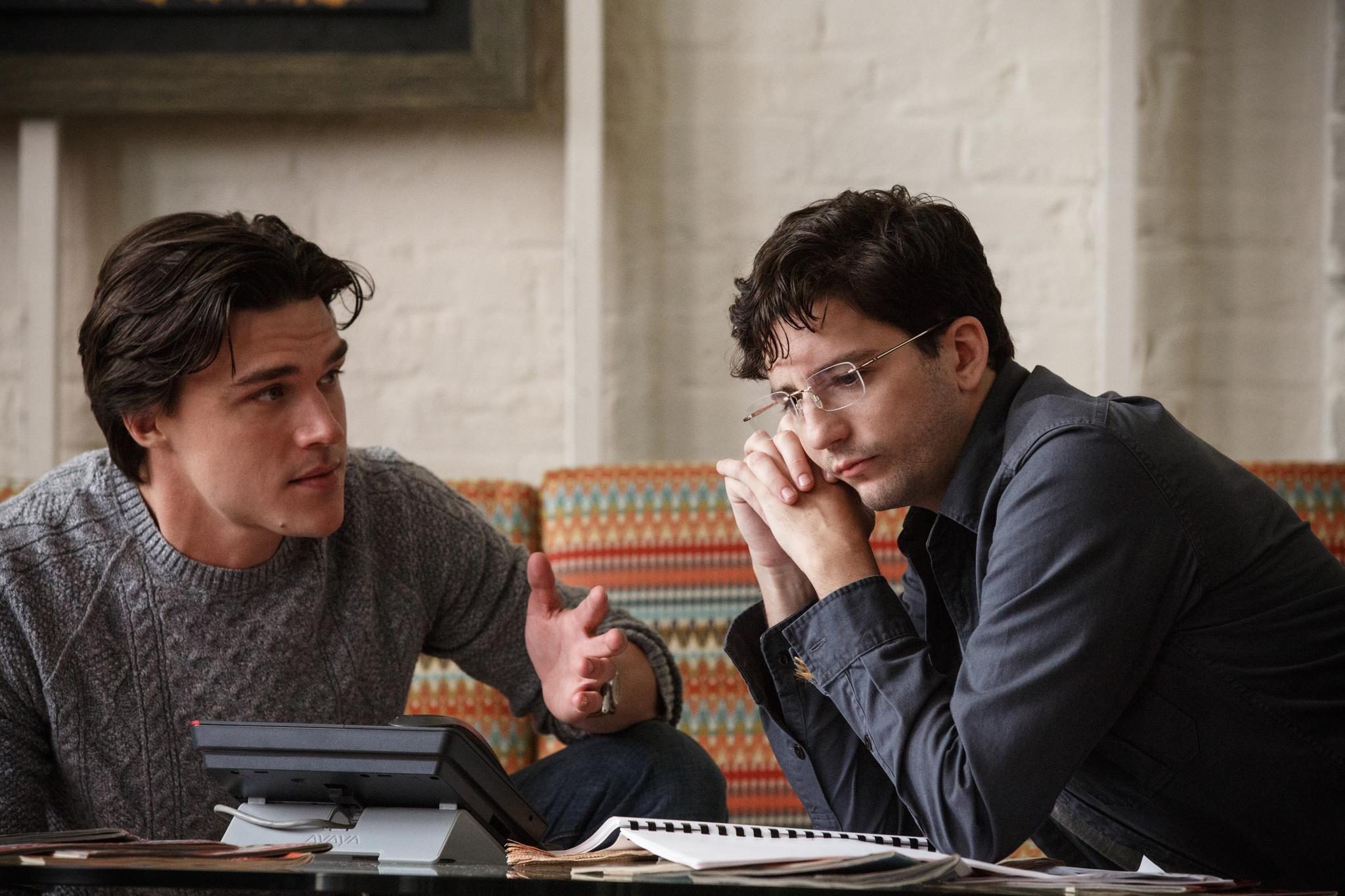
Scamming lessons
The Big Short does not relish in the dilemmas of its characters. McKay only uses them to navigate his way around the meeting rooms and conversation spaces, where ruthless negotiations and explanations ensue. The film is wholly interested in the screwball world that is governed by a reprehensible ideology that birthed complex and dangerous schemes and instruments that are sold as golden but are utterly worthless.
McKay explains the complications of Wall Street by the two things Hollywood is brimming with – celebrities and sarcasm. When the film requires a quick lesson on all the things that caused the crash, McKay recruits familiar faces, from renowned chef Anthony Bourdain to teenage sensation Selena Gomez, to do the explaining. He does so with fuming cynicism that only adds fuel to the absurdity of the large scale scamming that has happened. It just feels like everyone is involved.

This is the reason why the film succeeds. It functions not with an air of superiority that most holier-than-thou cinema is grounded on but with a fervent admission that everyone is in it, that we are all aware and complicit to the crime of omission. We are all afflicted with greed, or at the very least, the ability to exploit others for our personal benefit.
It shouldn’t be funny, but it is. That is the grand tragedy of McKay’s The Big Short. – Rappler.com
 Francis Joseph Cruz litigates for a living and writes about cinema for fun. The first Filipino movie he saw in the theaters was Carlo J. Caparas’ Tirad Pass. Since then, he’s been on a mission to find better memories with Philippine cinema. Profile photo by Fatcat Studios
Francis Joseph Cruz litigates for a living and writes about cinema for fun. The first Filipino movie he saw in the theaters was Carlo J. Caparas’ Tirad Pass. Since then, he’s been on a mission to find better memories with Philippine cinema. Profile photo by Fatcat Studios
Add a comment
How does this make you feel?
There are no comments yet. Add your comment to start the conversation.